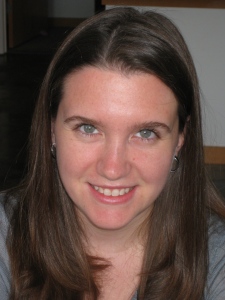Here in the Library’s digital preservation program, we have become more and more active in the realm of personal digital archiving (and see our related blog posts on the subject here). So it’s of great interest to us when we hear about other such activities happening in libraries around the country. For example, the Kansas City Public Library has an upcoming event focused on personal archiving, which will include information about digital materials.
Jordan Fields, Digital Library Services Manager at the Kansas City Public Library, will be presenting a talk at this event called “Preserving Digital Images: Caring for Your Photos in the Digital Age.” Fields is an enthusiastic advocate, and according to her blog post from last year’s event, it looks like the advice they offer is much the same as ours. I asked her if she could tell us about their event, and about her experience in the area of personal digital archiving.
Tell us a little about your upcoming event.
The day-long “Preservation Matters” event will take place at The National Archives at Kansas City and will cover preservation basics for both physical and digital materials. Members of the public can also bring in an item for one-on-one preservation advice. My portion of the seminar will cover preserving digital images.
What other resources do you point people to?
The information should look familiar since I always refer people back to the Library of Congress information (and we thank you, Jordan!). In the past I’ve referred people to the book Organize Your Digital Life for basic information and for more advanced information I’ve recommended The DAM Book, both of which are available for patrons to check out at our library.
Your event addresses physical as well as digital items. How many in your audience are interested in digital materials?
Although our seminar covers both physical and digital materials, I can only speak to digital preservation and I would definitely say that interest in the topic is growing. Last year was the first year that we had a digital preservation event for our community, and I look forward to seeing how the audience this year is different.
What feedback have you gotten from your audience?
Most audience members are just grateful to know what they need to do with their digital images. There’s not a lot of information out there for the non-professionals. As more and more people realize how much of what they’ve recorded of their lives exist only in digital formats, or experience some sort of loss due to not taking action to preserve their files, they’re starting to seek out advice and are very appreciative for the expertise that librarians and information professionals can offer.
What do people seem most interested in?
Many people are surprised at how fragile digital files are and at the amount of work over time it takes to preserve them. It’s much more of a commitment than they expect.
What do you feel is the most important point to make about personal digital archiving?
Take the time to do the work to preserve your memories! Organize what you have now and then set up a system to stay on top of it. You don’t have to preserve everything, but if you don’t preserve anything, then you risk losing so much.

